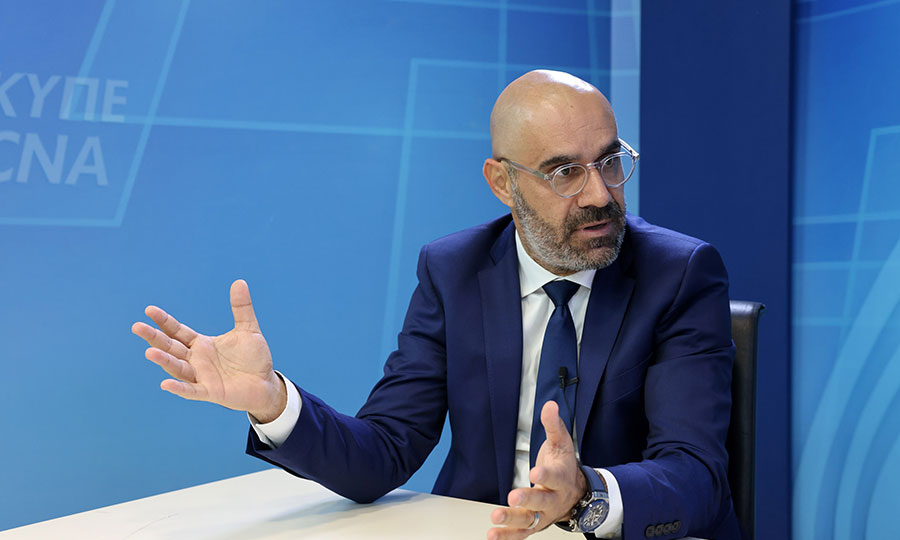

Marina Economides
The resignation of Deputy Minister of Innovation Philippos Hadjizacharias shouldn't come as a surprise. This is not solely due to ethical considerations, as his name has been among those vilified and deconstructed by the Presidential Office. Primarily, his departure is rooted in substantive concerns. Persistent rumors of cabinet instability and an anticipated reshuffle have undermined both the State Ministry of Innovation and other ministries, whose political leaders were perceived to have one foot out the door.
Nikos Christodoulides, from the early days of his administration, made it clear that this cabinet had an expiration date. Whether through whispers or leaks, weak links in the government became evident, and the President's dissatisfaction with them was reflected.
Initially, three deputy ministers were targeted for replacement, but Michalis Hatzigiannis' resignation temporarily closed the issue, deferring the reshuffle to September. Meanwhile, the President's discontent with Popi Kanaris intensified, and following the incidents in Chloraka and Limassol, the dissatisfaction shifted to Justice Minister Anna Prokopiou. Recent days saw a resurgence of the reshuffle scenario, not intentionally leaked alongside an interview with "Phileleftheros" but conveyed through the President informing political leaders and exploring potential ministerial replacements. The news of the reshuffle became known not only to the media but especially to the ministers themselves.
Members of the cabinet have exhibited weaknesses in performing their duties since the beginning. If they face scrutiny, it is for accepting ministerial roles despite knowing their clear shortcomings in their assigned portfolios. Chosen by the President, these individuals were expected to be either supported in crucial moments, with the President taking political responsibility for his choice or replaced immediately if they hindered the government's work. Deconstructing them through whispers or leaks not only unsettled the ministers but also revealed aspects of Nicos Christodoulides' governance style and his readiness to assume responsibility in crises.
The most concerning aspect for the country is the emerging sense of ungovernability. This situation is reminiscent, to a lesser extent, of last autumn when Nikos Christodoulides signaled replacing the Chief of Police, creating disarray among subordinates and eventually retaining him in the absence of an alternative. This raises two questions about the current state of the government:
- How much work can a minister produce if rumored to leave, extensively challenged by the political boss, and scrutinized by subordinates awaiting the next one?
- What motivation do ministers have to reform this place when they realize the President will neither support them in times of trouble nor hesitate to replace them if they cause damage?
The ongoing reshuffle discussions primarily affect the President. Not only has he shown a readiness to dismantle colleagues with whom he would otherwise reform the state, but the management of the reshuffle capital long announced and yet to materialize, raises concerns. If the President struggles with a reshuffle he himself announced, questions arise about his ability to handle larger issues not entirely under his control. Philip Hadjizaharia managed to leave before being replaced; the question remains about the President's governance if, for reasons of propriety, other rumored cabinet replacements also resign. The President has not yet found replacements, despite having had time to announce the reshuffle.
[This article was translated from its Greek original and edited for coherency in English]































